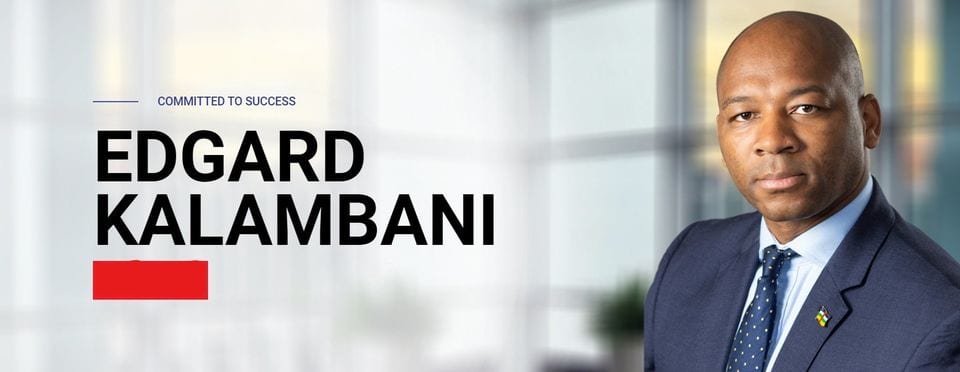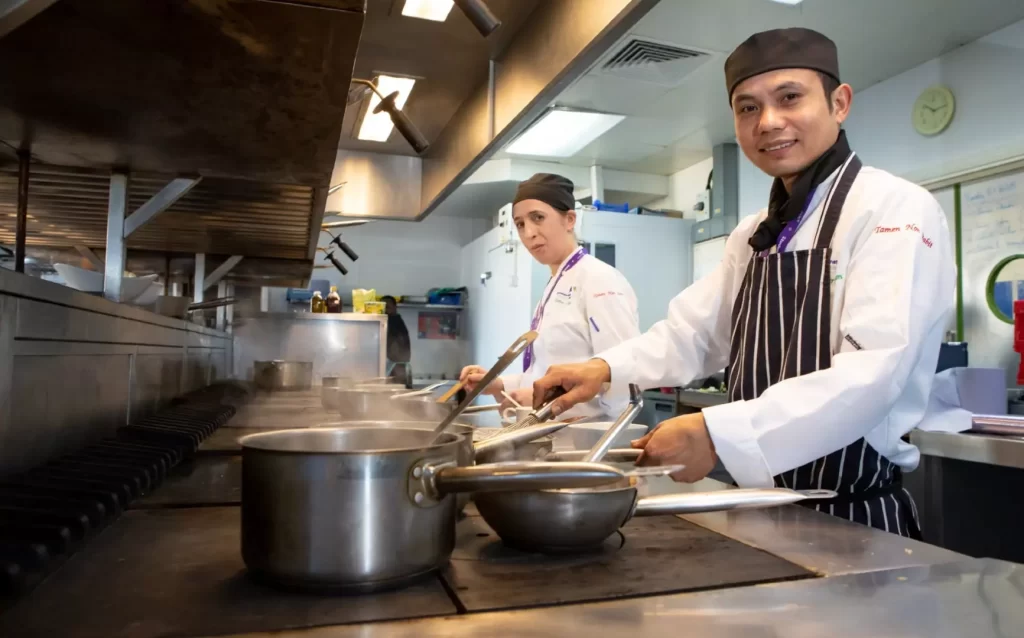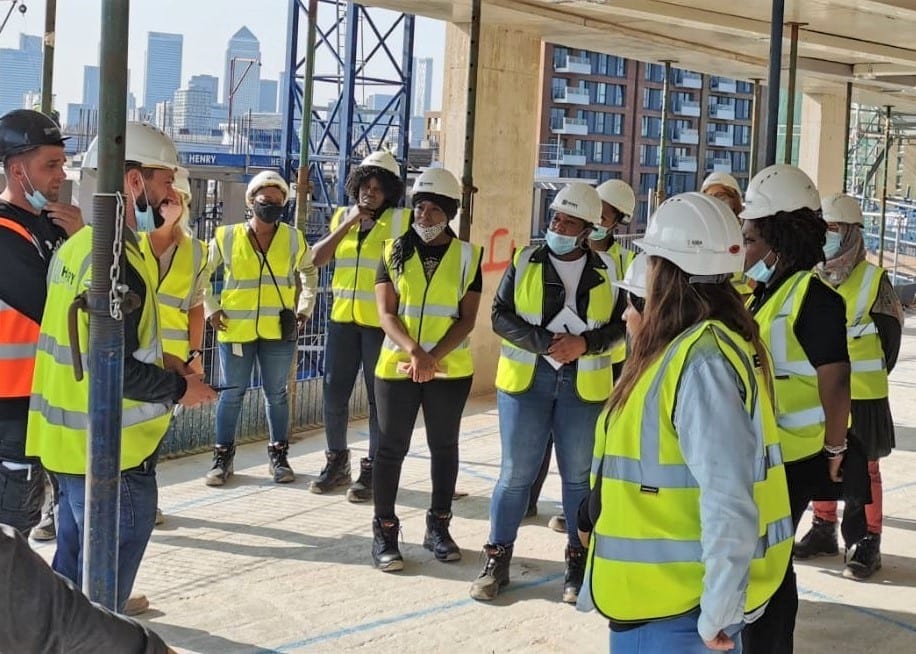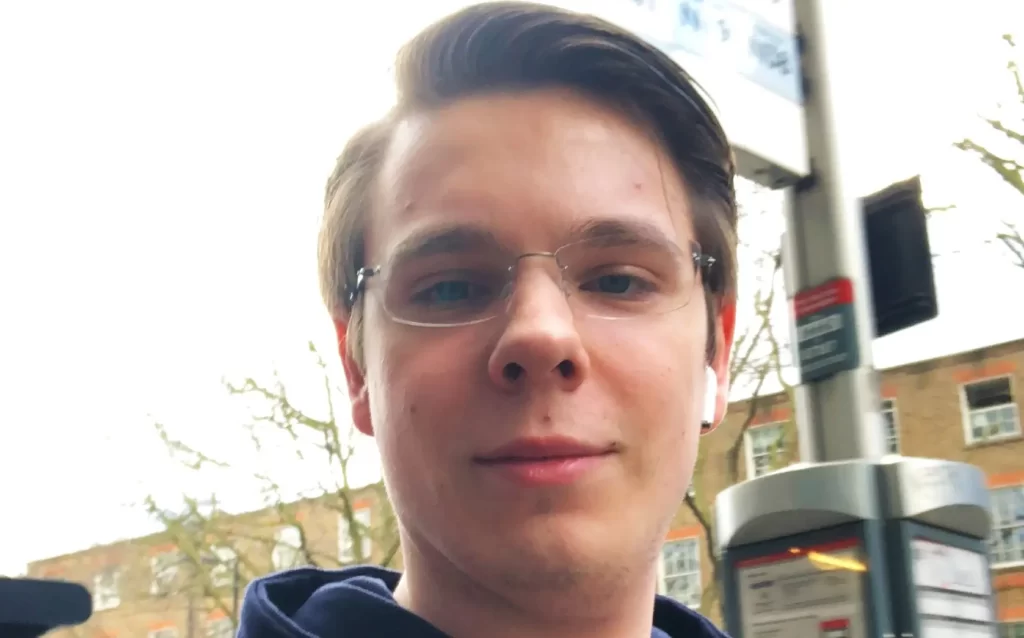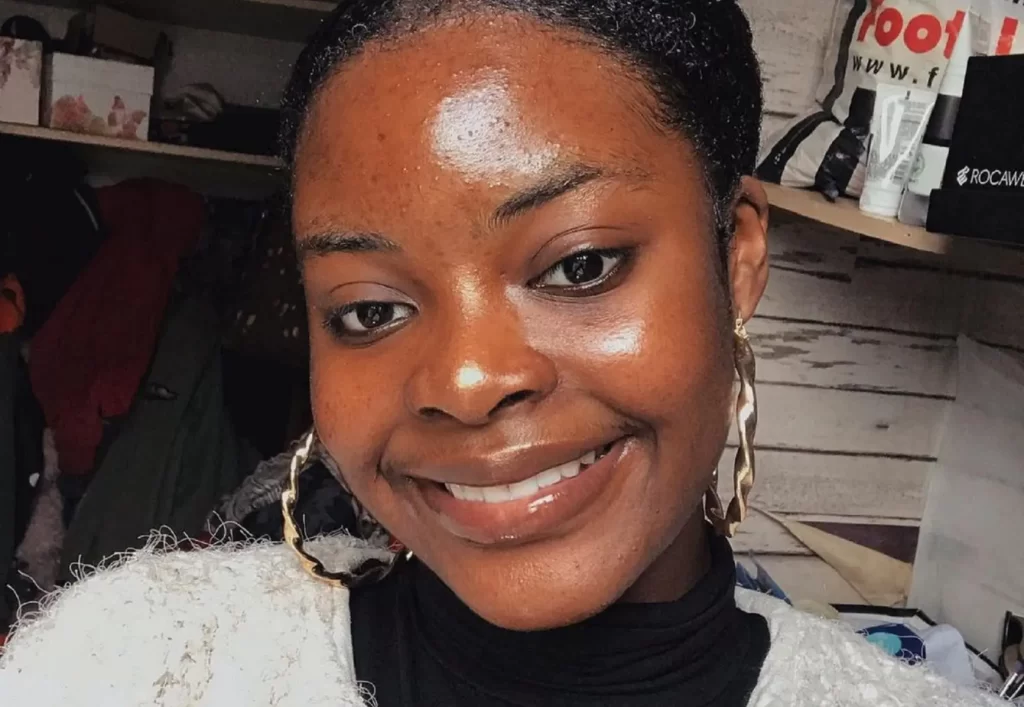The College of Haringey, Enfield and North East London in its present form dates back to August 2009. Tony Papard, 75, from Battersea, attended the then Tottenham Technical College from 1958-1961. Here, he shares his memories after recently visiting the college for the first time since his studies.
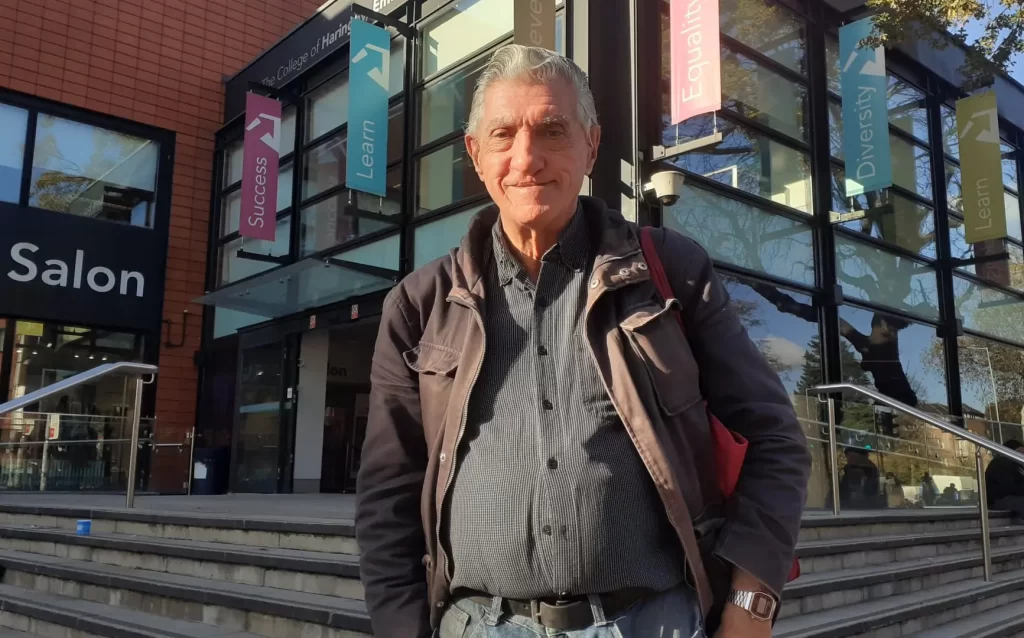
Tell us about your early life
I was born in central London and first grew up in West Hampstead. At the age of six my parents split up and we moved in with my maternal grandparents in Bowes Park, Wood Green, and later a council flat behind Alexandra Park in 1957. I went to St Mary’s Church of England Primary School in Kilburn, Beaumaris School, which was a girls’ school but took boys up to the age of seven, and then Bounds Green Junior School and Bounds Green Secondary Modern School.
When did you study at the college?
I studied at Tottenham Technical College from 1958-1961. Back then the college took students from the age of 13, so from then until school leaving age it was an ordinary school. I stayed on with others for a year of further education.
What did you study?
My senior school was a secondary modern with no choice of subjects to be studied. I could not get on with woodwork or metalwork, so took an entrance exam to go on a commercial course at the college. The first two years were a continuation of our regular schooling, so all normal subjects were taught such as geography, religious instruction (i.e. Christian), history, English, English literature, maths plus the commercial subjects, which included bookkeeping, typing and Pitman’s shorthand. When I stayed on the extra year to take my exams the normal subjects were dropped. There were mainly girls in the class and six boys mainly wanting to become chartered accountants. I took my GCE O Levels and RSA Stage II exams and passed in all subjects, except English Literature.
What was the college building like back then and how has it changed?
After so many decades the college has changed almost beyond recognition. There was only the main building and the smaller tower block then with an assembly hall between two quadrangles, one of which has gone. The one behind the main façade, was where we could take breaks. Apart from the doorway at the south end of the main building, where we used to come in, and the corridors and windows, it’s very different to what I remember. I believe there was a cafeteria somewhere at the top of the main building, but I cannot recall what kind of meals they served. The Drama Hall is now an open area whereas before it was divided into separate classrooms. The newer parts of the college, including the taller tower block, workshops and reception area were all added long after I left. Where The Salon is now was an archway leading to the smaller tower block. The old library, where I used to spend spare periods reading copies of the National Geographic, has been replaced by the new one, as have the old gym and changing rooms.
What were lessons like at that time?
Most lessons were in classrooms of about 30 pupils with blackboards, many of which were the vertically rotating kind. Boys and girls were separated in classrooms. We sat at desks and had to use fountain pens as ballpoints were not allowed. We had some lessons in the lecture room in the original tower block. Debate was not encouraged. Lessons were mostly dictated, and with one teacher it was a case of copying down his scribble on the blackboards before it was all erased. There was a weekly walk to Tottenham Marshes where some of the other boys played football. Once they asked me to be linesman. I had no idea what that meant, so laid down at the side of the pitch and went to sleep. They never asked me again! There was a visit to the Old Vic to see Macbeth. For some reason I decided not to go with them, which I later regretted.
What do you remember about your teachers?
My teachers included Mr Owen, who was very strict for the first two years but then after the summer break changed completely and spent most of his lessons telling us about his time growing up in Wales. There was also Mr Watters, who taught geography, He had a paralysed arm and looked like Oliver Hardy. Then there was the timid Miss Lincey, who taught us from Religious Instruction, who would have been better suited to teaching in a primary school as we made fun of her mercilessly. One day, another teacher, Mr Tate, had fountain pen ink sprinkled on his jacket and we were hauled before Mrs Wright, the department head.
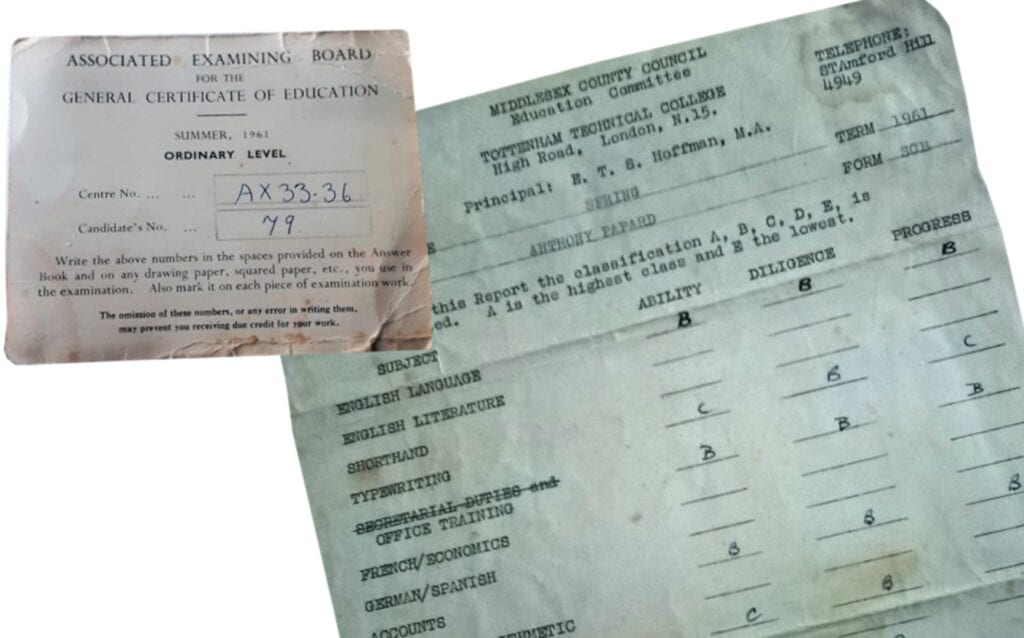
Who was your favourite teacher and why?
Mr Owen was probably my favourite. I recall he once said that in future we would remember we once had a teacher named Owen, who if we’d listened to more attentively, we would have been more successful. I am still not sure how he thought his stories of his boyhood in Wales would help us have successful careers!
Did anything you learnt at college stick with you?
It was while Mr Owen was teaching me commerce that I decided capitalism was evil and read Karl Marx’s Capital, which led me to become a lifelong socialist, joining the British Communist Party for a short time in the late 1960s.
What did you do when you left college?
My family moved to Welwyn Garden City during the last few months at college. While other leaving students received careers advice, I did not because I had moved to another county. I ended up working as a clerk for a printers and after a year got a bookkeeping job at the headquarters of the Campaign for Nuclear Disarmament (CND) in London, which I loved, and stayed there for six years. I recall one of my college teachers, Mr Dent, saw me on a CND march and said he approved. I also worked as an International Telegraph Operator with the Post Office and later as a Telex Operator for a number of organisations. I met my ‘husband’ George in 1970 and we were together 21 years until he passed in 1991. We had a very loving relationship and travelled the world together. He got me away from the Communist Party and after that we both got jobs with Amnesty International at different times. I later took early retirement to look after my late mother. I now write regular articles for Roots magazine and have self-published several books, including a memoir and short stories.
Robin Hindley, Vice Principal of CONEL, said: “It’s always great to hear of people’s life stories and how the work of colleges impacts on them for the rest of their lives. Tony’s life story shows how the impact of individual teachers can shape the choices we make and the careers available to us. And how great it is to come across people from the past on your continuing journey, as he did on the CND march.
“In its current form, CONEL remains a local college, giving local residents opportunities to learn new skills and look for new careers. Much has changed in the buildings and resources on the site, but we’re still committed to supporting local people to get on in life. These days, our teachers aren’t known as Mr this or Mrs that, but they work as hard as they can to help their students to be confident with the skills they’re learning so that they can go out and get the job of their dreams. We’re very proud of our students and staff and we know that we’re creating lifelong memories for many of them on their journeys through life.”
Are you a former student? Tell us your memories and experiences of CONEL and where you are now – contact marketing@conel.ac.uk










